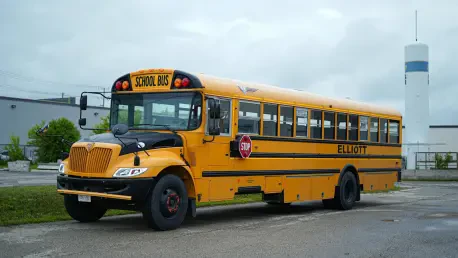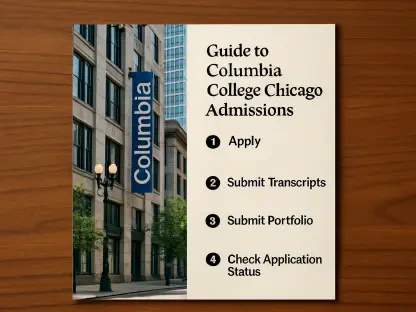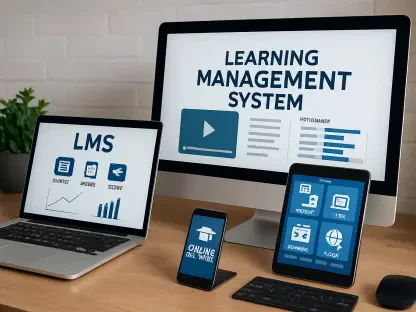As the new school year begins across Pennsylvania, the critical importance of school bus safety and the indispensable role of bus drivers have come into sharp focus, highlighting the urgent need for community cooperation. At a recent press event held at the Rohrer Bus facility in Duncannon, Acting Secretary of the Pennsylvania Department of Education (PDE), Dr. Carrie Rowe, joined forces with the Pennsylvania School Bus Association to underscore the necessity of safe student transportation and strict adherence to traffic laws. This issue strikes at the core of ensuring that every child can access education without the risk of harm during their daily commute. The familiar yellow buses rolling through neighborhoods serve as a powerful reminder of the shared duty to protect young passengers.
Beyond the immediate concern of safety, a deeper challenge looms with a persistent shortage of qualified drivers, threatening to disrupt the smooth operation of school transportation. The urgency to address these intertwined issues has intensified as students return to classrooms, highlighting the need for community cooperation and innovative solutions. This discussion sets the stage for a closer look at how Pennsylvania is working to safeguard its students and support the vital workforce behind the wheel.
Upholding Safety Standards on the Roads
Ensuring Compliance with Traffic Regulations
A cornerstone of protecting students during their commutes lies in the strict enforcement of the Pennsylvania School Bus Stopping Law. This regulation requires motorists to stop at least 10 feet away from a school bus when its red lights are flashing and the stop arm is extended, regardless of whether they are behind the bus, approaching from the opposite direction, or at an intersection. Drivers must remain stationary until the lights stop flashing, the arm is retracted, and all children have safely cleared the area. Dr. Rowe has stressed that community participation is paramount, urging every motorist to prioritize the well-being of students and transportation staff by adhering to these rules. Non-compliance not only endangers lives but also undermines the trust placed in the system designed to shield the most vulnerable.
The significance of this law cannot be overstated, as even a momentary lapse in attention can lead to devastating consequences. Public awareness campaigns are being amplified to educate drivers on the importance of patience and vigilance around school buses, especially during peak morning and afternoon hours. Historical data from across the state reveals that violations of stopping laws remain a troubling issue, often due to distracted driving or unfamiliarity with regulations. By fostering a culture of responsibility, Pennsylvania aims to minimize risks and ensure that every child’s journey to and from school remains secure. This collective effort is a fundamental step toward building safer communities.
Reinforcing Public Awareness for Child Protection
Beyond legal mandates, raising awareness among the general public plays a crucial role in enhancing school bus safety. Many drivers may not fully grasp the gravity of their actions when they fail to stop for a bus, often underestimating the time it takes for children to cross roads safely. Educational initiatives are being rolled out to address this gap, focusing on the potential consequences of disregarding safety protocols. These efforts include targeted messaging through local media and community events, emphasizing that protecting students is a shared obligation that transcends individual convenience.
Additionally, schools and transportation authorities are collaborating to remind parents and guardians about reinforcing safe behaviors with children, such as waiting for the bus to come to a complete stop before approaching. This multi-faceted approach seeks to create a protective network around young commuters, ensuring that safety is prioritized at every level. By embedding these principles into daily routines, Pennsylvania is striving to cultivate an environment where accidents involving school buses become a rarity rather than a recurring concern.
Supporting the Backbone of Student Transportation
Recognizing the Essential Contribution of Drivers
School bus drivers are often the unsung heroes of the education system, framing each student’s day with safe and reliable travel. Their role extends far beyond simply operating a vehicle; they are the first and last point of contact for many children, providing a sense of security and consistency. Gerry Wosewick, executive director of the Pennsylvania School Bus Association, has expressed immense pride in the integral part drivers play in students’ daily lives. Their dedication ensures that education remains uninterrupted, a sentiment echoed by Dr. Rowe, who highlighted their vital contribution to shaping the future leaders of the Commonwealth.
The impact of a bus driver’s presence goes deeper than logistics, often fostering trust and reassurance among families who rely on this service. Many drivers form bonds with the children they transport, becoming familiar faces that offer comfort during the journey. Acknowledging their significance is not just about gratitude but also about understanding the broader implications of their work on educational equity. Without their commitment, countless students would face barriers to attending school regularly, underscoring the need to support and value this essential workforce.
Navigating the Hurdles of Driver Shortages
A significant challenge threatening this critical service is the persistent shortage of school bus drivers across Pennsylvania. The hiring process, while thorough, is notably lengthy, often spanning 10-12 weeks from initial application to obtaining a Commercial Driver’s License (CDL). This includes extensive classroom and in-bus training, background clearances, and rigorous knowledge and skills tests. Such a demanding timeline can deter potential candidates, particularly those seeking quicker employment opportunities. As a result, many districts face staffing gaps that lead to delayed or canceled routes, directly impacting students’ ability to access education consistently.
The ripple effects of this shortage are felt deeply in rural and urban communities alike, where alternative transportation options may be limited or nonexistent. School administrators are often forced to make difficult decisions, such as combining routes or relying on temporary solutions that may compromise efficiency. Addressing this issue requires not only attracting new applicants but also retaining existing drivers through better working conditions and recognition. The urgency to resolve this bottleneck is clear, as the absence of reliable transportation can exacerbate educational disparities.
Boosting Recruitment with Innovative Strategies
To combat the driver shortage, the Pennsylvania School Bus Association is spearheading recruitment efforts through hiring events and accessible online platforms like “School Bus Hero” and resources provided by the Department of Motor Vehicles. These initiatives aim to highlight the rewarding aspects of the job, showcasing how drivers make a tangible difference in students’ lives. Both full-time and part-time positions are promoted, offering flexibility to attract a diverse pool of candidates who might not have previously considered this career path.
Moreover, these programs provide comprehensive support, guiding applicants through the training and certification process to ease entry into the field. By framing the role as both meaningful and impactful, the association seeks to inspire a new generation of drivers to join the ranks. Partnerships with local communities and schools further amplify these efforts, ensuring that recruitment messages reach those who are most likely to embrace the responsibility. This proactive approach is a vital step toward closing the staffing gap and maintaining the integrity of student transportation services.
Building a Stronger System Through Collaboration
Forging Partnerships for Policy Reform
At the heart of addressing both safety and staffing challenges is the robust partnership between the PDE and the Pennsylvania School Bus Association. Dr. Rowe has reiterated a commitment to working closely with stakeholders to revisit outdated regulations that no longer meet current needs. This collaborative effort focuses on creating a supportive framework for school transportation, streamlining the hiring process, and enhancing safety measures to protect students during their commutes. Such reforms are essential for adapting to evolving challenges in the field.
The dialogue between state officials and industry leaders ensures that policies are not only reactive but also forward-thinking, anticipating future needs. By aligning regulations with practical realities, this partnership aims to remove unnecessary barriers that hinder driver recruitment while maintaining high safety standards. This ongoing cooperation serves as a model for how systemic issues can be tackled through shared goals and mutual accountability, ultimately benefiting the entire educational ecosystem.
Advocating for Elevated Safety and Standards
Representing over 250 school transportation contractors and industry partners, the Pennsylvania School Bus Association acts as a powerful advocate for setting the highest safety and contracting benchmarks. Their unified voice pushes for systemic improvements, ensuring that student transportation remains both reliable and secure across the state. This advocacy extends to lobbying for resources that support driver training and public education campaigns, reinforcing the importance of community involvement in safety efforts.
The association’s influence also helps standardize practices among contractors, reducing variability in service quality and safety protocols. By championing these elevated standards, they contribute to a culture of excellence within the industry, where the priority remains unwaveringly on student well-being. This relentless pursuit of improvement reflects a broader commitment to safeguarding the future of education through dependable transportation, ensuring that no child is left behind due to logistical failures.









